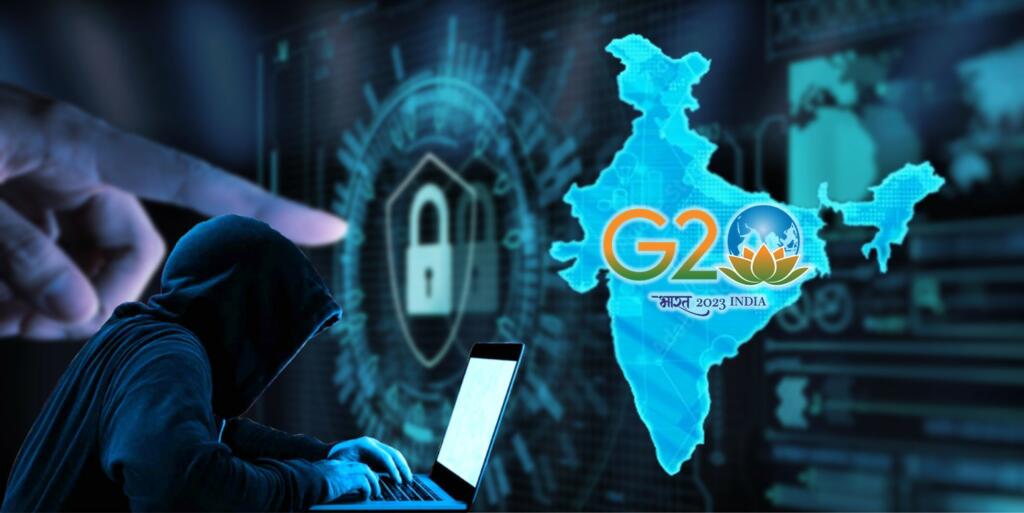In the world of ‘complex interdependence’, the world is in chaos because of the fragile global economy and geo-political tussles. In the storm-like world conditions, a country that is sailing peacefully and with prosperity is India. The international community that always wanted India to be their mouthpiece, is worried about its neutrality and unprecedented growth. And now, they are waging an information war against India. This becomes more important at a time when India is holding the presidency of G20 this year.
India’s growing influence and G20
In the previous G20 summit held in Indonesia, India showed its soft power when all the member countries’ representatives were under a single roof. Because of the ongoing Russia-Ukraine war, all the state actors got divided into the respective camps. It was almost evident that Russia will not participate in the summit and upon its participation, other countries will object. But India contributed for peace, which culminated in the summit declaration. So, India’s growing soft power is stinging in the eye of the west and China. Consequently, they are escalating the tussle to the information war.
The recent Adani-Hindenburg feud is a perfect example of information warfare that is economical in its consequences. The Hindenburg report was released just a day before Adani group’s FPO. Adani being the richest man in India was the obvious target. His losses swelled to $100 billion and he has called off the FPO worth Rs. 20,000 crores. As most of the public enterprises have invested in the share of his group, their investment is facing losses. This all is happening on the basis of a report that is released by a company that claims to earn the money only through short selling.
Also read: From United Nations to G20, how PM Modi, shaped the global narrative around the Ukraine-Russia War
Cyber Security threat to India
If we look at past trends, we can get the clear image of this information warfare against India. But first of all, let us go through the cyber security threat incidents from the data released by (CERT-in). According to CERT-in annual report, in 2021 India faced 1,402,809 incidents cyber-attacks, an increase of about 21% from the previous year.
Chinese threat
One such incident of cyber security breach was the hacking of AIIMS server in Delhi, which took place on November 23. For a few days, the servers were down and the data of almost 3-4 crore patients was compromised. Later it was investigated that Chinese hacker were involved in the hacking. Chinese involvement is actually a big concern, as the country’s involvement in the spread of covid-19 virus and playing with global health is still under question.
Undoubtedly, China is the biggest proponent of information warfare. Recently, in the UK, Charles Parton report caused unrest which said that China is conducting a mass surveillance on people through chips in LED bulbs. Huawei, a Chinese company, was banned in the UK because, it was illegally procuring the data of its customers on behalf of the Chinese government and CCP. But, outside the UK, British Broadcaster Corporation (BBC) is getting funds from the same Huawei for its overseas journalism sites.
In less than one month of AIIMS server hacking, BBC released its controversial documentary on PM Modi which actually was in contempt of the Supreme Court of India.
Also read: So, CCP is now hacking into India’s medical infrastructure
Parallel conventional and information warfare
In geo-political context, it is always said that “weapons do not lead to win the war, information does”. So, intelligence agencies always try to acquire knowledge and spying became the best way for them to do so. In today’s news from Armenia, an army captain was arrested for passing the critical information of Indian made weapon locating radar to a foreign agency. Now, this is for no doubt an internal matter of Armenia. But, the information of the radar can be misused against India as India is also using them. It could also be a bigger part of the information warfare.
Information warfare is practised two-fold. On one side, it is based on procurement of crucial data of the country and on the other side, using the data to affect the domestic and international conditions of the country. And, India is facing it from both the sides. Western countries want India to grow only so much that it can counter China while China is undoubtedly, the biggest threat to India.
Support TFI:
Support us to strengthen the ‘Right’ ideology of cultural nationalism by purchasing the best quality garments from TFI-STORE.COM
